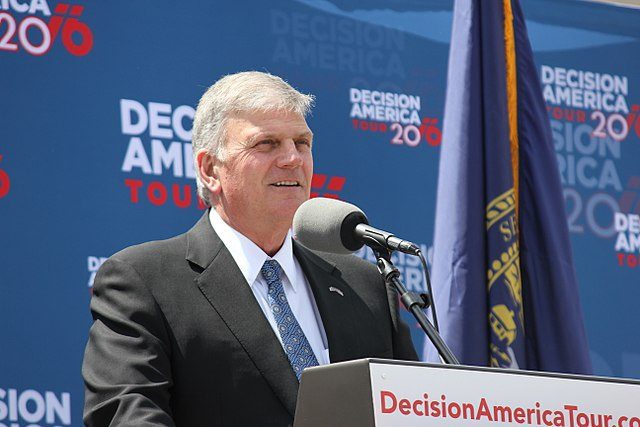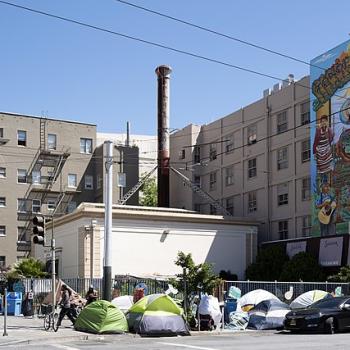
The claim is that conservatives & “old” pro-lifers lack any appreciable concern for poor people.
Words of Dr. Edwin Woodruff Tait will be in blue; Scott Eric Alt’s in green; Vicki Clark in purple; others identified.
***
God cares for the poor, and so should we. I’d like to see documented, any Catholic with a “Catholic IQ” above that of a pencil eraser who denies this (as some folks are claiming these days).
I keep hearing about these people (and often, avid pro-lifers are accused of this), but I’ve never personally seen any Catholic (who knows and lives their faith at all), so ignorant or callous.
I think the context of this was that I posted a link from Bad Catholic pointing out that social justice is also a non-negotiable, that there are more than five. That led one of my friends to recall that, in addition to “non-negotiables” there is an additional category, “sins that cry out for vengeance.”
Okay; that makes sense. One could plausibly argue that it is an additional non-negotiable. But I still don’t see folks (particularly among those wicked, tunnel-vision pro-lifers, of whom I am very proud to be a part) who deny that God cares for the poor, and that we should, too.
These days, many seem to be out to show that opposing political positions are intrinsically hypocritical .
Granted, we all tend to do that about ideologies and political perspectives we disagree with, but it has become intensely personal, because we’re at the pinnacle of Crazy Season now. [i.e., presidential election time]
I don’t see them either, Dave. Any of us who have spent any time in in the pro-life trenches know firsthand that is a pernicious straw man. It seems to be aimed at those of us who disagree that social justice is best accomplished by more taxes and government programs. Caring for the poor is a non-negotiable. Believing that it has to be accomplished by government programs is not morally required. In fact, it can be argued that government programs add to the plight of the poor.
Totally agree.
Of course, for many liberals, there is only one way to help the poor (their way, of course, which has produced the mess we’re in now: “Great Society” and all that), and they think that any alternate way is self-evidently false (if even a “way” at all); hence, “against” the poor.
That way, one can only be “for” the poor if one is a political liberal. See how that works? By definition, if one is not a liberal (and/or thinks pro-life is the supreme issue for our time), they can’t possibly be also compassionate towards the poor, according to a common motif in liberal polemics and rhetoric.
Nope. Dorothy Day is the hero of the “Catholic left,” yet she was opposed to big government and most of the New Deal legislation.
Always exceptions, Edwin, which is why I said “many liberals” and “a common motif in liberal polemics”.
Samuel van der Bijl The state is the worst possible actor to prevent poverty and help the poor. I think you can only be “for” the poor by insisting on as much private initiatives as possible to help the poor. The state is there for the real emergencies.
I am not convinced by the first sentence. I think it’s propaganda.
But if you’re arguing with your fellow Catholics, then you have to deal with the fact that the primary hero of those with whom you disagree was basically an anarchist. And that might lead you to consider the possibility that you’re flailing away at a straw man. The left-wing Christians I know generally think that government programs are needed to help the poor. But they also recognize that there are many ways to help the poor. They are pretty convinced–as I am–that Republican policies of recent years harm the poor very badly and are designed to help the rich get richer. That does not mean that the only way they imagine helping the poor is through massive government programs.
Glad to hear it. I think they are in the minority, though, and such a view is almost nonexistent at high (public) levels every four years.
Lloyd Cadle I love helping the poor. That is why I am in the Knights of Columbus.
***
We can talk about how to best serve the poor, as long as it doesn’t venture into the Two Who Shall Not be Named [Trump and Hillary Clinton], and descend into the usual personal attacks. I’ve certainly had good constructive dialogue with my friend Scott about similar issues.
Essentially, you’re posing a challenge and refusing to admit the most obvious evidence that answers it, so you’re loading the dice. Your page, your choice. You want to pretend that you and other “conservatives” haven’t sold authentic conservatism for a mess of pottage, go ahead. Delete all the evidence to the contrary. But you’re tarnishing your integrity by doing so.
I disallow discussion about the presidential campaign. You don’t like it, you can lump it. You have tons of other pages where you can preach that stuff.
If you attack my integrity one more time I will block you, even despite the many great dialogues we have had through the years. I regularly take more than enough crap from all quarters. I don’t need to take it from those whom I regard as friends.
I am a Distributist; not a typical conservative. I detest the manifest excesses of corporate capitalism as much as any liberal; possibly even more so. I just don’t buy socialism as the solution to that.
I can’t be put into your stupid boxes and categories any more than Dorothy Day can.
[Edwin shortly afterwards claimed that Trump enthusiasts were “under the judgment of God”: at which point I promptly blocked him]
Stephen DeCasas I think the definition of poor is negotiable. People in America may consider themselves poor if they only have 1 car and 1 TV. In another country that might not be considered poor. Some people are literally starving and have no shelter, so defining poor can be negotiable. While there may be room for disagreement to who is poor and what qualifies as poor, there is no wiggle room on the five non-negotiables. I also think how we help the poor is highly negotiable. I may be better suited to helping people by providing meals or manual labor. The point of the five non-negotiables is a person who actively supports, promotes, or participates in any of these actions is committing an intrinsically evil act. I believe the confusion, especially in the U.S. is that people see these as legal and therefore are more inclined to not speak out against them. It’s a real shame that with all the Catholics and Protestants in this country we can’t even stop the worst actions of our society!
I give money and time to the church and charity. I wholeheartedly believe in helping the poor but I also do believe the government can’t do a good job at it. The Catholic Church feeds, clothes, educates, and provides medical care for the poor and they have been for a long time. Perhaps we should rely more on the church than our elected officials!
***
Related papers:
Catholic Compassion and Beggars on the Street
More Thoughts on Giving Alms to Homeless Beggars on the Street
This “Conservative” is Very Passionate About Social Justice
***
(originally 10-3-16)
Photo credit: Conservative Protestant Rev. Franklin Graham (5-18-16); photo by Matt Johnson. He founded Samaritan’s Purse, a charitable organization (focusing on disasters) active in over 100 countries. In 2012, it generated $336 million in relief funds. [Wikimedia Commons / Creative Commons Attribution 2.0 Generic license]
***













